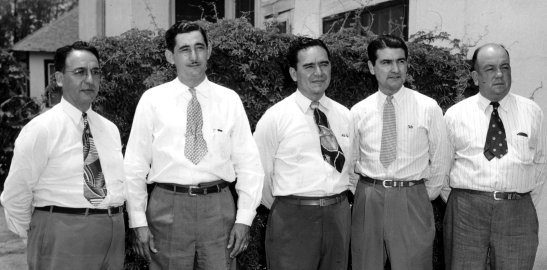By Don Harris
For 60 years, the Arizona Hispanic Chamber of Commerce has been at the forefront of promoting the growth and welfare of Hispanic-owned businesses throughout the state.
 The vast majority are small operations with one to five employees, but that doesn’t begin to tell the impact the Hispanic community has on Arizona’s economy. Chamber President and CEO Harry Garewal estimates the buying power of the Hispanic community in Arizona is $27 billion. That’s “b,” as in big bucks.
The vast majority are small operations with one to five employees, but that doesn’t begin to tell the impact the Hispanic community has on Arizona’s economy. Chamber President and CEO Harry Garewal estimates the buying power of the Hispanic community in Arizona is $27 billion. That’s “b,” as in big bucks.
Overall there are about 35,000 Hispanic-owned businesses in the state, Garewal says. The chamber has a membership of 650 of the larger firms, many of which are not owned by Hispanics. Included are 52 corporate members, such as Wells Fargo and the Salt River Project.
Considering the Hispanic community’s economic muscle, it’s no wonder why non-Hispanic corporations support the chamber. “They want to get into the Hispanic market,” Garewal says.
That fits nicely with the chamber’s mission to “promote the success of Hispanic businesses by facilitating business relationships, development and knowledge.”
Hispanic-owned businesses make up a diverse segment of the economy — professional consultants, lawyers, Realtors, mortgage companies, banks, retail, restaurants, landscaping and cleaning services. Founded in 1948, the chamber has established a reputation as a leader in setting the pace for business growth in today’s highly diversified market.
Historian Frank Barrios, who is writing a book on the chamber’s 60 years, says, “The value of the Hispanic Chamber of Commerce to the Hispanic community and to the Arizona economy is in enabling Hispanic businesses to promote their unique business perspectives, often represented by language and/or culture. It may also allow other non-Hispanics to reach out to the Hispanic community for social and/or political reasons, providing a window into the Hispanic community.”
In the last decade, the number of Hispanic-owned businesses in Arizona has increased significantly. At the same time, roughly one out of four residents is of Hispanic origin or descent.
After Garewal came on board five years ago, the chamber asked its members what they needed.
“As a result,” he says, “the chamber provides diverse technical assistance, including programs in business planning, seminars, marketing consultations, leadership development, networking opportunities, how to become certified to qualify for government contracts, what kinds of licenses are needed, the differences between an LLC, a ‘C’ corporation and an ‘S’ corporation. It’s all about what small business owners don’t know because they have been busy working their business.”
Providing access to capital is another prime function of the chamber. “We help identify financial institutions that will help give them access to capital,” Garewal says. “Maybe it’s just a matter of tweaking their business plan, their financials, so they can become bankable, which enables them to grow their business and create more jobs.”
Another service focuses on procurement. “We identify specific kinds of contracting opportunities,” Garewal says. He provides examples of successes through the efforts of the chamber and the businesses themselves.
A $1 billion Phoenix bond program provided Hispanic businesses with several opportunities for infrastructure services and products.
In Pinal County, a Casa Grande manufacturer wanted to set up a $45 million gypsum plant in Eloy. The chamber arranged workshops in Phoenix, Tucson and Eloy for subcontractors. Garewal says 61 businesses attended the sessions, and $32 million in contracts went to firms the chamber identified.
Garewal also served on a committee for emerging small businesses for the Super Bowl staged in Glendale last February. It was an 18-month project to provide input and access to NFL decision-makers and educate chamber members regarding the opportunities available to them.
More recently, Garewal and Joseph Ortiz, senior vice president of public relations and community affairs for the chamber, were invited to meet with NBA officials to discuss opportunities for vendors in connection with the 2009 All-Star Game, which will be held in Phoenix.
“They want to give everyone a fair chance at the opportunities, and we’ll share that information with our members,” Garewal says.
While the chamber closely monitors and tracks bills at the Arizona Legislature, it does not get involved in lobbying — yet.
“We have a good understanding of how the process works,” Garewal says. “For example, 40 of our members met this spring with the Hispanic caucus. It was the largest such meeting with Latino legislators, and members of the caucus were impressed that we had that many members who are interested in what was going on at the Legislature.”
Issues of interest include access to capital, procurement of contracts and affordable health care, but the main focus is on immigration.
“In the next year or two, we will be in a position to affect how public policy is established in the Arizona Legislature,” Garewal says.
At the national level, chamber officials meet with members of the Arizona congressional delegation. “We have been very engaged in immigration discussions, including border security,” Garewal says. “The federal government needs to take its responsibility seriously.They need to come up with a comprehensive immigration reform act that would address the 12.5 million folks who are here working. The government needs to provide a transition period — a mechanism to have those folks who are here today transition into becoming citizens of the United States. If the federal government tried to send 12.5 million people back to their countries of origin, that would bankrupt the United States. We wouldn’t have the work force necessary for the U.S. economy.”
With the assistance of the chamber, the future of Hispanic-owned businesses in Arizona appears bright.
“One thing that stands out,” Garewal says, “is that the chamber has always been, in its 60-year history, representative of the contributions that Hispanics have made in the state of Arizona.”




